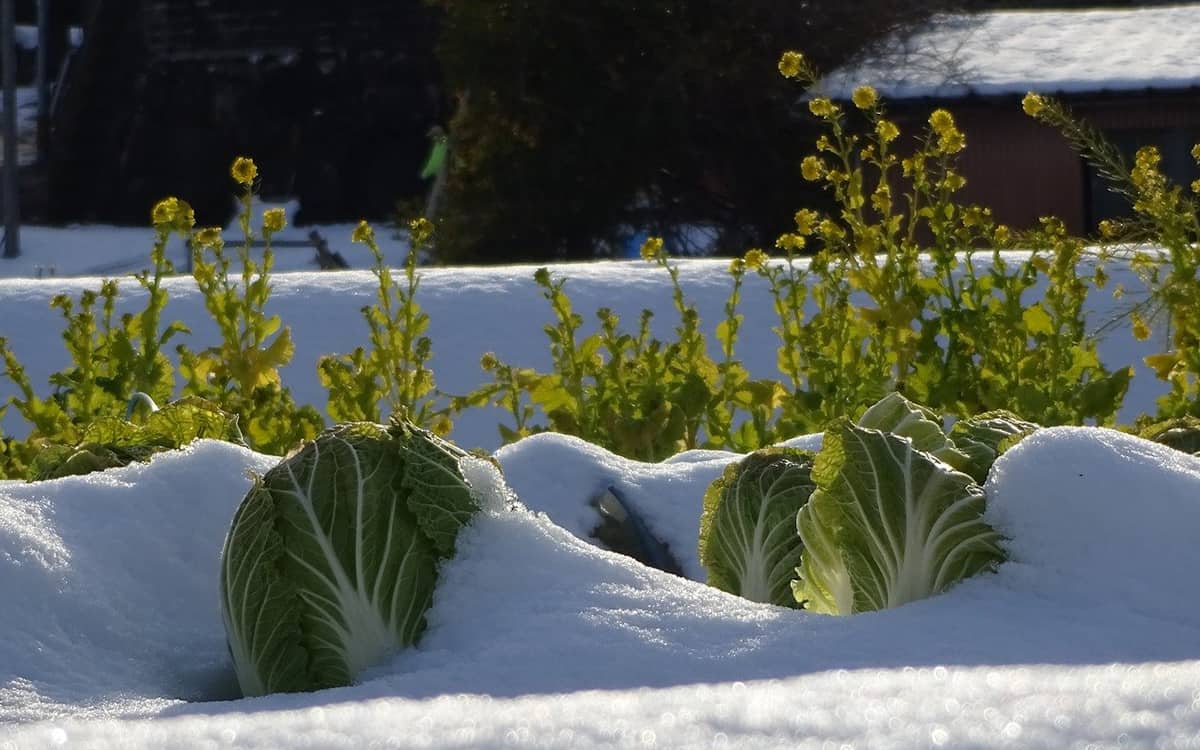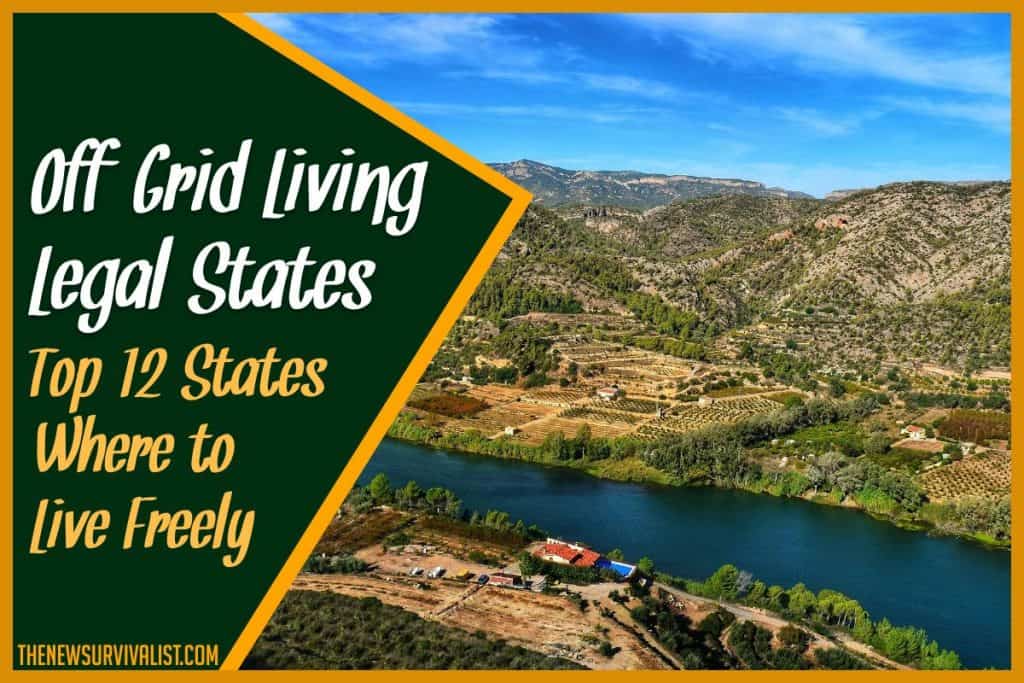Off-grid living is sustainable living in complete privacy with little to no human interaction. It’s also a fantastic way to tune out the noise of the world and focus on what truly matters to you. However, this can be challenging because it means living without electricity, water, and other utilities.
The top 12 states that are best for off-grid living include:
- Alabama
- Missouri
- Georgia
- Maine
- Tennessee
- Texas
- Montana
- Ohio
- Arizona
- Vermont
- Oregon
- North Carolina
When choosing a state, it’s important to assess the main off-grid living laws that will affect your quality of life, comfort level, and survivability. It’s important to assess each state carefully and to gauge them based on factors like land prices, weather and climate, population density, and more.
Off-Grid Living Laws To Remember
The laws for an off-grid living may vary from state to state but there are common ones that are present in most states. The most important laws you should consider in every state include:
- Rainwater collection laws
- Composting toilet codes
- Regulations for solar energy
- Laws to completely disconnect from the power grid
- Selling raw milk
- Building permits for constructing permanent dwellings
- Size of your home
- Restrictions about raising livestock (which are often indicated in your property deed)
- Rules on processing own waste and creating composts for biodegradable wastes
Top 12 States For Off-Grid Living
Alabama

This state is known for its smaller community of off-grid individuals. This is a good state because of the low cost of living and the affordable property tax. You can easily purchase a large plot of land at an affordable rate. This state is also liberal with its building codes so you can easily put up a survival house or a homestead.
The only issue is that it tends to get really hot during the summer which may affect your comfort levels as well as the growth of your crops. Alabama also has a higher risk of tornado and hurricane activity. You’ll need to spend some additional money to reinforce your home against these natural disasters. It’s recommended to purchase a plot of land that’s far away from the coast as it’s cheaper and will reduce the likelihood of flooding.
Take note that disconnecting from the power grid is illegal in Alabama. The cost of power is also expensive. It’s likewise illegal to disconnect from the water source or to collect rainwater. However, pit or portable toilets are allowed for as long as you secure the necessary permits.
Missouri

The main reason why Missouri is great for off-grid residents is because of the friendly environment and the vast amount of land that isn’t covered by zoning laws. The state allows homesteading and doesn’t require building permits to establish permanent homes. Off-grid electricity is legal so you can freely use solar power without getting taxed. There’s already a large group of off-grid people in this state, including the ones in Amish communities.
It’s also legal to disconnect from the municipal water source and to collect rainwater. As for personal waste disposal, composting toilets are legal while pit privies are illegal in occupied communities. The best thing to do is to install a septic tank in your location.
Georgia
The main downside is the strict set of state laws. It’s legal to disconnect from the main electricity source but the state has poor laws that support solar grid power. Harvesting rainwater is legal but should be limited to outdoor purposes. Composting toilets are legal but highly regulated. For example, all composted wastes must be buried in the appropriate locations and shouldn’t be used as fertilizer for food crops.
Maine
The land is abundant in natural resources that support independent living. These resources include water and timber. The main downside is that the growing season is shorter than in other states. However, you can just boost the crop yield per round through indoor gardening or greenhouses. Disconnecting from the main power source, collecting rainwater, and composting toilets are all legal in Maine.
Tennessee
The only downsides are the limited building codes as well as the frequent tornado warnings. Off-grid power, rainwater collection, and composting toilets are all legal. There are a few restrictions about pit privies that may require you to install a septic tank and a source of running water.
Texas
Off-grid electricity is legal. Many electrical companies in Texas offer mini power grid installations for small communities. Rainwater collection is also legal so residents aren’t mandated to connect to the municipal water source. Compost toilets are legal but there are stricter rules regarding pit privies. The pit privy must be situated at least 75 feet from human habitation.
Montana
Most of the land is covered in grassland. Tinder is abundant and you can use it as firewood or for building properties and furniture. Off-grid electricity, rainwater collection, and compost toilets are all legal in Montana.
Ohio

The southern part of the state has cheap land, low property taxes, low crime rates, and a low cost of living. On top of that, this area is abundant with natural resources that can help you survive in the wild and live sustainably. Ohio has a reasonably long growing season that lasts from May to October.
Some areas don’t have permit offices so you won’t struggle much with the bureaucracy of building a property. There are no zoning laws so you have a lot of freedom which makes this ideal for independent living.
Off-grid solar panels and rainwater collection are both completely legal. Some permits may be required for the usage of the rainwater collected since it is deemed as state property. There are stricter laws regarding compost toilets and the disposal of gray water.
Arizona
Arizona is abundant in sunlight all year long so you’ll receive sufficient solar energy to power up your grids. However, they have strict laws that mandate each household to connect to the main electrical supply of the state, and even if you wish to depend on your solar grid, the government charges an expensive “solar tax.” You also need a permit for your compost toilet.
Vermont
Vermont heavily supports eco-friendly practices which is why solar grid panels and rainwater harvesting are allowed. However, you should look into the local county laws regarding building permits and zoning codes. Some areas mandate all houses to be connected to the principal power source.
Compost toilets, pit privies, outhouses, and other off-grid toilets are generally allowed for as long as you secure the proper permits and situate these establishments at a reasonable distance from habitation.
Oregon
There are off-grid communities already in place in Oregon. Two of the biggest communities are in the Three Rivers Recreation Area and Breitenbush Hot Springs. Each community has shared electrical grids and water supplies.
Off-grid electricity is legal in Oregon. Rainwater collection is likewise legal for as long as you collect it from your private property, like your lawn or roof. It’s illegal to collect rainwater from ground sources like reservoirs and dams.
Compost toilets are legal for as long as you have a permit and the conditions pass inspection. The law also allows human waste to be composted for as long as it’s not near fruit trees, edible vegetation, and other consumable crops.
North Carolina
Off-grid solar panels are legal in North Carolina. Rainwater collection is also legal but take note that the North Carolina Plumbing Code regulations should be applied when using the collected water indoors for household use. Compost toilets and other off-grid toilet options are legal for as long as there is an approved wastewater disposal system in every household. This rule implies that it may be mandatory to connect your toilet to the municipal water source and sewage system.
Factors To Consider When Picking A State
Land Prices
The general rule is that the cheaper the land price is the more square footage you can purchase. That means a wider area for a homestead, a shelter, a barn, a survival garden, and more. It’s important to assess the exact amount of square footage you need because a larger area isn’t automatically desirable. A larger area equates to more responsibilities and expenses that you need to be prepared for.
Laws
Some states have stricter off-grid laws compared to the others. Some require more building permits with stricter building codes that may hinder you from living comfortably and might make you spend more than you can afford. Other states may charge penalties for disconnecting from the electrical source and other utilities.
Property Taxes
The annual property tax may limit the size of your property and affect the overall costs of building a permanent home.
Weather And Climate

Pick a state with good weather conditions. It’s not ideal to live in a state that’s plagued by storms every few months. This will affect your home and may hinder your crops from growing. The weather and climate also directly affects the types of crops you can grow in your survival garden.
You should also research which state has a lower percentage of natural disasters. Check historical records for the frequency of such events like tsunamis, tornadoes, flooding, hurricanes, and drought.
Crime Rate And Population Density
Building a survival retreat or bugout location means stockpiling precious metals, foods, fuel, and other valuable items that you can use for bartering. This may turn you into a target as other people scramble for resources. Staying in a state with a lower population density is ideal because it means a lower likelihood of being stolen from.

